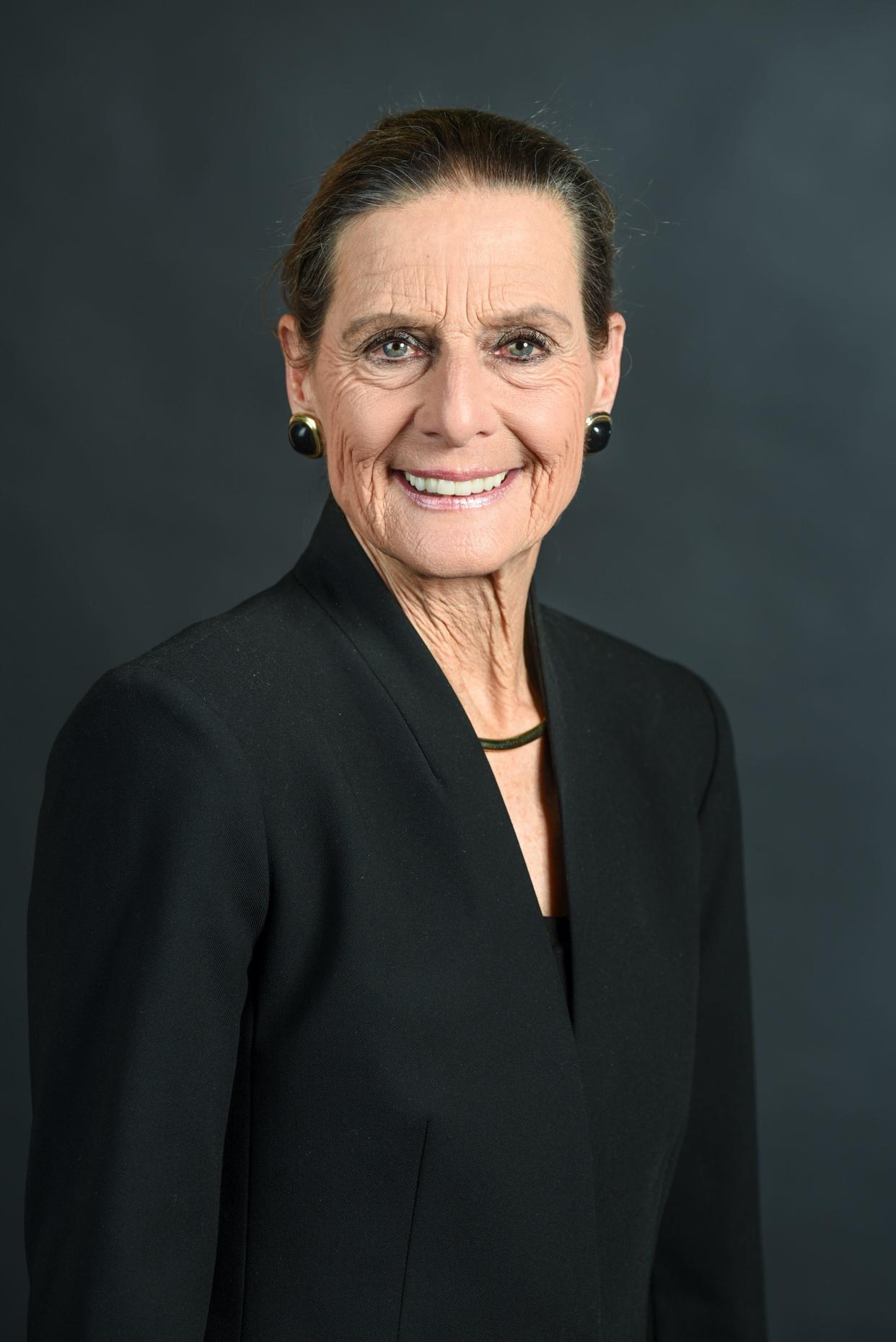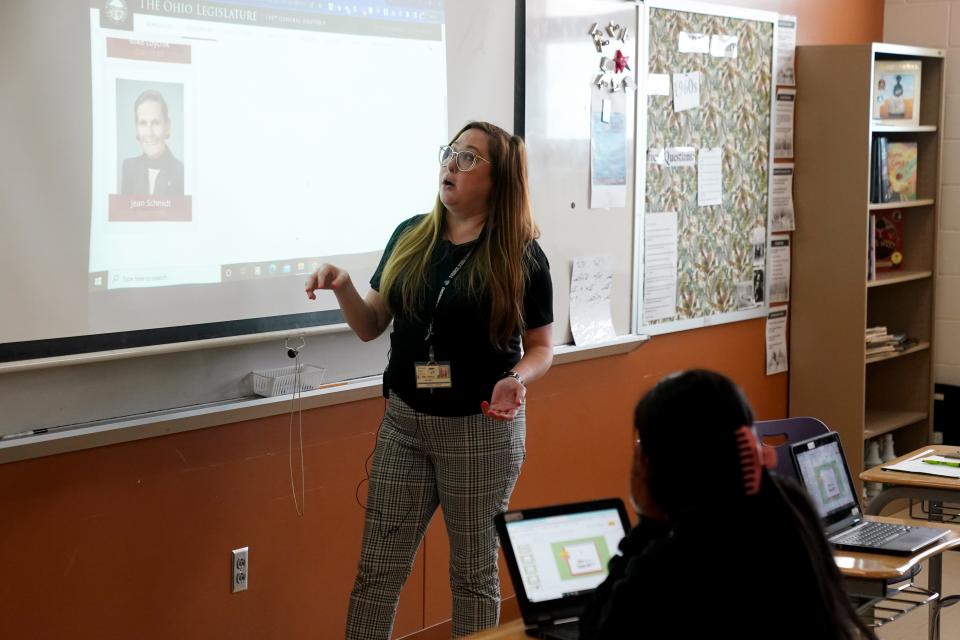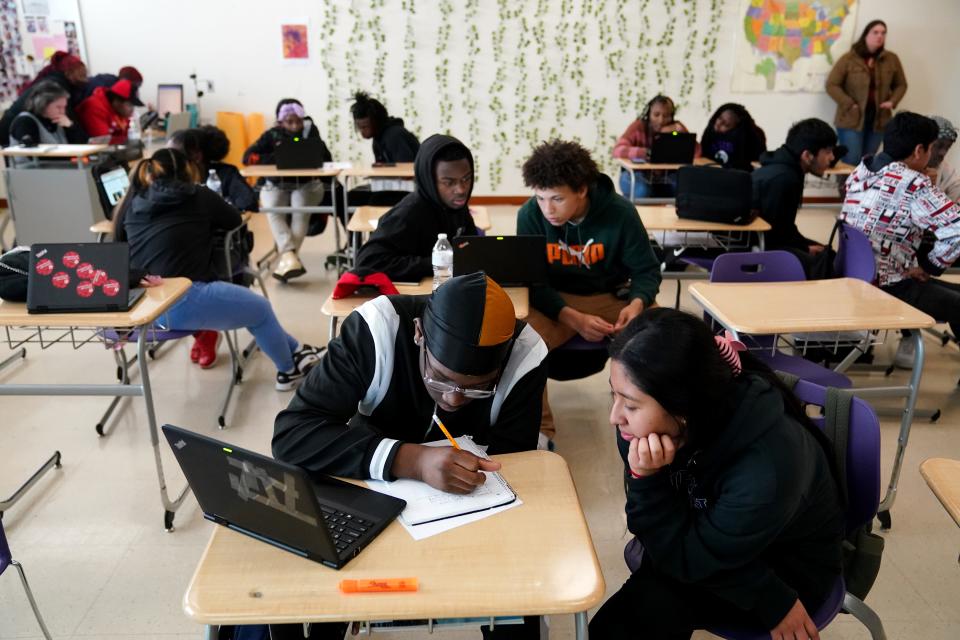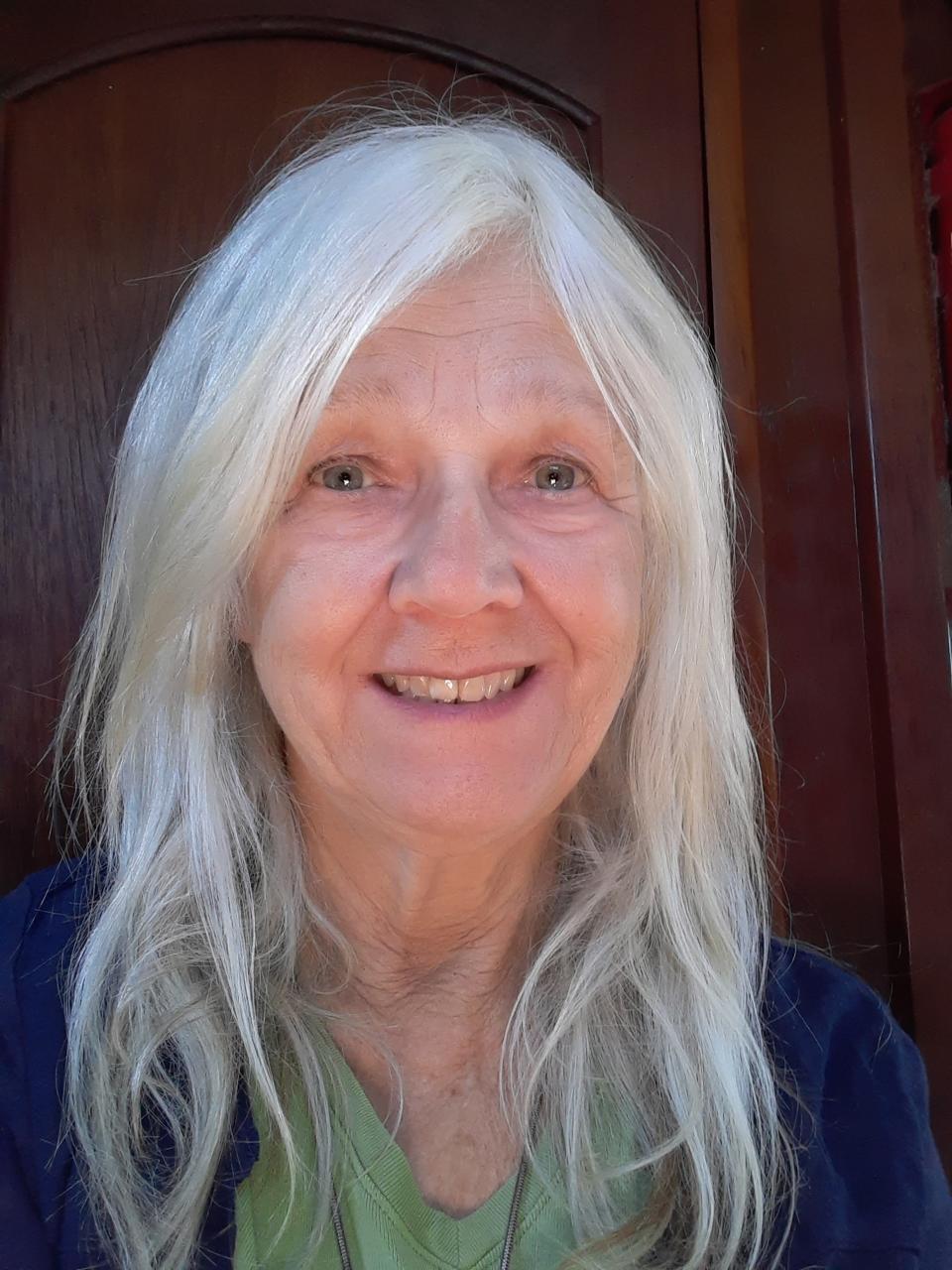Opinion: Bill protects the innocence of young children

In explaining why she introduced House Bill 616, Ohio state Rep. Jean Schmidt told The Enquirer that "it's a parental rights bill." Professionally, I would like to affirm and defend HB 616 and our representatives' work to protect the young minds and futures of our pre-K through third-grade students. For me, as an advocate of preserving a sense of childhood, it is a children's rights bill.
The ideas of gender dysphoria and critical race theory are indeed developmentally inappropriate for young children. Adults need to protect the innocence of young children from the confusing rhetoric of this world. Author and clinical psychologist Dr. Jordan Peterson makes the point "we are born with a biological identity." Young children should not be wrestling with alternatives.
In relation to critical race theory, the grades beyond the early childhood grades of pre-K through third grade are the appropriate levels to be delving into the societal inequities and agendas of the past and present. Yes, we need to absolutely teach history, but it needs to be without saddling shame and guilt onto the generations going through school now and in the future. The early childhood educator is to be the advocate, along with parents, on behalf of the youngsters’ emotional, psychological, intellectual, physical and social well-being.
From a professional perspective, how does the proposed HB 616 seek to protect young children? The proposed legislation would prevent early onset of identity crises typically experienced in the teen years of life. Questions like "Who am I?" and "What am I?" need to be addressed in a concrete, tangible manner for children in the early years of development with a high degree of factuality on the part of the educator. We also need educators to be responsive in a neutral, non-biased manner.

The abstract considerations of gender dysphoria and critical race theory have no place in the classrooms of young children, but if a child initiates the question or makes a statement related to one of those issues, teachers need to be prepared to acknowledge the reality, with neither an endorsement nor negative judgment. A neutral, "Yes, I’ve heard of that" or "Yes, I have seen that" can convey what the child has observed is indeed out there in society, but it does not condone nor condemn.
While explicit instruction is needed for many topics within the classroom, the responsible adults should be able to maintain the basics of race and gender with implicit, understated modeling and example. An exceptionally curious child inquiring about such matters can be redirected to seek further understanding from their parents. Young children can be indirectly taught that within a classroom, and beyond in our complex American society, there is diversity of ethnicity, religion, personality types, political points of view, emotional responses, intellectual abilities, physical capabilities, etc., with all having equal access to opportunities.
In her interview with The Enquirer, Schmidt was asked "if teachers will be able to answer students’ questions about those issues." Her answer: "They can answer questions honestly and appropriately." I would have preferred if she'd said, "They can answer questions with neutrality and appropriateness." It is highly inappropriate for teachers at any grade level to share their personally held political and religious beliefs, sexual orientation and experiences within the public classroom context.

Teachers, textbooks and standardized tests (whether statewide or national) should never disclose a particular viewpoint as the "only" one to be held by individuals or groups. One modification in the HB 616 legislation I would recommend is a change to Section 3313.6029 (A.1.d, line 33 of the document) excluding learning outcomes related to diversity, equity and inclusion. I would propose as a citizen and as an early childhood educator that there indeed can be commonly held learning outcomes and experiences for young students that can teach respect of our differences, recognize the equality of each of us, and the essentiality of welcoming and including all within the multiple environments of our American society.
Everyone deserves justice, dignity and respect, and we can delve into that without pursuing inappropriate agendas.
Deborah J. Ranz-Smith lives in Blue Ash and has worked as an early childhood professional for 40 years, with 31 years of practitioner's experience engaged with kindergartners and parents. During her kindergarten career, she worked with local and state-level committees developing social studies curricula that were age-appropriate and considerate of the learners.

This article originally appeared on Cincinnati Enquirer: Opinion: Bill protects the innocence of young children

